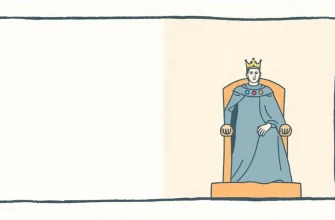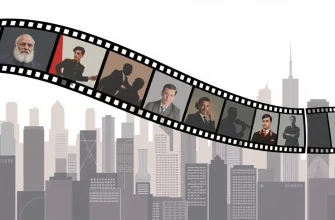Propaganda has always been a powerful tool, shaping public opinion and influencing historical events. These biopics delve into the lives of those who wielded this tool, exploring the ethical dilemmas, personal ambitions, and societal impacts of their work. This collection offers a unique perspective on how propaganda has been used throughout history, providing viewers with both entertainment and education.

The Great Dictator (1940)
Description: Charlie Chaplin's satirical take on Adolf Hitler, highlighting the absurdity and danger of fascist propaganda.
Fact: This was Chaplin's first true talking picture, and he took a significant risk by making a film that openly mocked Hitler during World War II.
 Watch Now
Watch Now 
The Fog of War (2003)
Description: This documentary features Robert S. McNamara, former U.S. Secretary of Defense, discussing his role in Vietnam War propaganda and the ethical implications of his decisions.
Fact: The film won the Academy Award for Best Documentary Feature, and McNamara's reflections offer a rare insider's view on the use of propaganda in wartime.
 Watch Now
Watch Now 
The Lives of Others (2006)
Description: This film explores the life of Gerd Wiesler, a Stasi officer in East Germany, who uses surveillance to manipulate and control the lives of citizens, showcasing the chilling effects of state propaganda.
Fact: The film won the Academy Award for Best Foreign Language Film in 2007, and it was the first German film to do so since
 Watch Now
Watch Now 
Good Night, and Good Luck (2005)
Description: Focuses on Edward R. Murrow's battle against Senator Joseph McCarthy's anti-communist witch hunt, highlighting the power of media in combating propaganda.
Fact: The film was shot in black and white to reflect the era it portrays, and George Clooney, who also directed, plays Fred Friendly, Murrow's producer.
 Watch Now
Watch Now 
The Baader Meinhof Complex (2008)
Description: This German film examines the Red Army Faction, a group influenced by the propaganda of the time, showing how radical ideologies can be propagated.
Fact: It was nominated for the Best Foreign Language Film at the Academy Awards, and it provides a detailed look into the group's motivations and actions.
 Watch Now
Watch Now 
The Wave (2008)
Description: A German teacher's experiment to demonstrate how fascist movements can arise turns into a real-life demonstration of how propaganda can mobilize a group.
Fact: The film is based on the novel "The Wave" by Todd Strasser, which was inspired by a real classroom experiment in California in
 Watch Now
Watch Now 
The Ghost Writer (2010)
Description: A ghostwriter uncovers dark secrets while writing the memoirs of a former British Prime Minister, revealing the manipulation of public perception through political propaganda.
Fact: The film is based on Robert Harris's novel "The Ghost," and it was Roman Polanski's first feature film in English since "Death and the Maiden" in
 Watch Now
Watch Now 
The King's Speech (2010)
Description: While not directly about propaganda, the film shows how King George VI's speeches were crafted to boost morale and unity during WWII, a form of positive propaganda.
Fact: The film won the Academy Award for Best Picture, and it was based on the true story of Lionel Logue, the speech therapist who helped the King.
 Watch Now
Watch Now 
Citizenfour (2014)
Description: Chronicles Edward Snowden's revelations about NSA surveillance, showing how propaganda can be used to justify mass surveillance under the guise of national security.
Fact: The film won the Academy Award for Best Documentary Feature, and it was shot in real-time as events unfolded.
 Watch Now
Watch Now 
The Conformist (1970)
Description: An Italian film that delves into the life of a man who becomes an agent of fascist propaganda, exploring themes of conformity and manipulation.
Fact: Directed by Bernardo Bertolucci, the film was inspired by Alberto Moravia's novel and is known for its stunning cinematography.
 30 Days Free
30 Days Free 








